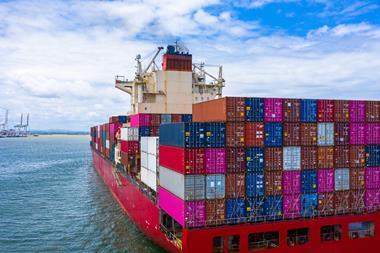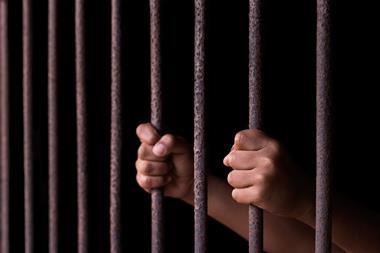Niall FitzGerald ‘plays poor golf and runs slowly.’ This modest final line in the profile of one of Unilever’s two chairmen is characteristic of the open approach adopted by the international food, domestic and personal products group known for brands such as Birds Eye, Dove, Domestos, Lipton and Knorr. It does not mention that at the age of 55, FitzGerald was training for the New York marathon.
As a business which describes itself as ‘Meeting everyday needs of people everywhere’, Unilever has been seen as a useful defensive stock in the turmoil following the terrorist attacks of 11 September. However, the announcement of flat growth in the third quarter of 2001 depressed sentiment. Unilever says it expects to achieve its planned growth in earnings for the year, but the market feels that this leaves too much to accomplish in the final quarter.
Over the last two years, this venerable Anglo-Dutch group has been going through an extensive realignment of its business, designed to deliver growth to shareholders after a sluggish period. The Path to Growth strategy, announced in detail in February 2000, plans to concentrate resources on 400 leading brands. The aim by 2004 is to increase top line annual growth to 5-6%, achieve an operating margin above 16% and increase earnings per share by at least 10% a year.
At the same time, Unilever has been integrating its US$24.3bn acquisition of the US Bestfoods, and divesting itself of brands and businesses it does not want to retain. In January 2001, it reorganised itself into two divisions: Unilever Bestfoods, and home and personal care.
During this period of intense change, explains spokesman Mike Haines, the group has been making a concerted effort to increase transparency. For instance, in December 2000, Unilever introduced a teleconference before the end of each trading quarter, to indicate to the market how the business had developed. These briefings are available on the corporate website, as is information about the group structure, policies, key and finances. In another revision the principles determining the remuneration and rewards for senior management are now put to a shareholder vote.
Corporate governance
Unilever has an unusual, possibly unique, corporate structure. Since the group was formed in the 1920s by two Dutch and British companies, they have operated as practically as possible as a single entity. They have the same accounting principles, the same directors and a series of linking agreements. An equalisation agreement regulates the rights of the two sets of shareholders. Across the group there is a high priority management of business risk, a code of business principles, and common social and environmental objectives and practices. FitzGerald, chairman of Unilever plc in the UK, and Anthony Burgmans, chairman of Unilever NV in the Netherlands, are joint chairmen of the group.
However, Unilever plc and Unilever NV are separate companies in different domiciles with separate stock market listings. One consequence is that the group is subject to the corporate governance requirements of each country, and the UK and the Netherlands happen to have mutually exclusive requirements in relation to independent oversight of the executive directors. The UK emphasises the importance of non-executive directors, while the Netherlands follows the continental preference for two boards, one supervisory and one administrative. Since both Unilever companies have the same board, it is not practical to have a dual structure.
Instead, advisory directors are the principal external presence in the governance of Unilever. “Chosen for their broad experience, international outlook and independence”, they include former UK ministers, US Senator George Mitchell, who was chairman of the Northern Ireland peace initiative between 1995 and 1999, and main board directors from companies in the US, Netherlands, Germany, Mexico, Spain and France.
These directors advise the boards and the executive committee on business, social and economic issues. One of their key roles is to monitor the implementation of corporate governance. Although they are not entitled to vote at board meetings and do not carry legal responsibility for the group’s actions, they play an important role in the committees that report directly to the board. The audit, external affairs and corporate relations, and remuneration committees consist exclusively of advisory directors, who also form a majority on the advisory committee.
Another departure from conventional corporate governance is that the roles of chairman and chief executive are combined – but with a Unilever twist. From the beginning, the group decided that the most senior roles in the two companies should not be concentrated in one person. Hence, the role of chairman and chief executive is combined in two people, FitzGerald and Burgmans, who meet regularly for joint decision making.
‘This carefully balanced arrangement has served Unilever’s unique constitutional arrangements very well for many years, and the boards believe that to separate these roles would only introduce undesirable and unnecessary complexity,’ says the statement on corporate governance in the group’s annual report for 2000.
Stock market views of the complexity of the Unilever structure are mixed. Sylvain Massot of Morgan Stanley comments that having two chairmen, two headquarters and a complex portfolio where it is not entirely clear that there are real synergies between the home, food and personal care operations, affects the market’s view of Unilever, especially in relation to competitiors like Nestlé. He thinks that further rationalisation is needed.
At CSFB, Martin Dolan shares the concern about the yoking of localised and slow-growing food businesses to the global, faster-growing personal products, but he is relaxed about the group structure. “They have had that structure since the early 1920s and it does not seem a hindrance. It is one of the few companies which seems to run a dual stewardship successfully.
Risk management
Business risks and uncertainties which could affect results come under the financial review and are specified in general terms. From a shareholder’s perspective, the most significant of these is probably the risk that Unilever cannot achieve its Path to Growth targets. Martin Dolan says the share price currently anticipates that the group will be successful, whereas there are many uncertainties over the next three years. This is why CSFB is a seller of the shares.
Market risks, such as the effects of changes in foreign exchange and interest rates, counterparty, supplier, commodity and distribution risks and the methods used to manage these exposures also come within the financial review.
There is a separate discussion of the group’s risk management and control procedures under the statement of directors’ responsibilities. This explains group procedures clearly. It does not elucidate the nature of the risks, but other documents such as the code of business principles and social review provide an insight.
The unusually clear and detailed code of business principles supports the control environment and sets a framework for worldwide operational standards in the decentralised group. Endorsed by the two chairmen, it covers business conduct, adherence to the law, employment practices, workplace safety, product quality, environmental issues and reliability of financial reporting. Compliance with the code is a board responsibility and there is an independent internal audit. The social review elaborates the application of these principles.
The two main boards have overall responsibility for establishing key internal control procedures and reviewing their effectiveness. Day-to-day implementation of the procedures the monitoring of risk and the effectiveness of controls lie with senior management at operating company and business group level.
Each business group has its own risk committee to review its exposures and the related control arrangements. They report to the corporate risk committee, which consists of the directors of finance, the two product divisions and personnel, the general counsel, head of corporate audit and controller. It reports to the main boards and the executive committee. In addition, the external affairs and corporate relations committee, made up of four advisory directors, advises on external matters, including issues of social responsibility.
In many ways, the company’s approach and record are impressive. It has established internal control procedures which meet the recommendations of the Combined Code on Corporate Governance in the UK, and risk management is ultimately a main board responsibility. The social responsibility report contains the startling information that workplace accident rates fell by two-thirds between 1996 and 1999. Unilever is one of the constituents of the FTSE4Good ethical index, which selects companies on the basis of their work toward environmental sustainability, positive relationships with shareholders and support for universal human rights.
Nevertheless, Unilever illustrates some of the difficulties in bringing together the whole spectrum of risks which need to be managed. One of the group’s targets is that its total shareholder return should be in the top third of a reference group of 21 international consumer goods companies. Attention thus focuses on the risk that it does not achieve them. Sylvain Massot thinks that Unilever has given itself limited time to progress along its Path to Growth. “If by 2003, it is clear that they are going to struggle to get to the target, then - and only then - we could possibly start hearing about a demerger.”
--Lee Coppack is a market analyst for StrategicRisk
UNILEVER GROUP FACTS



















